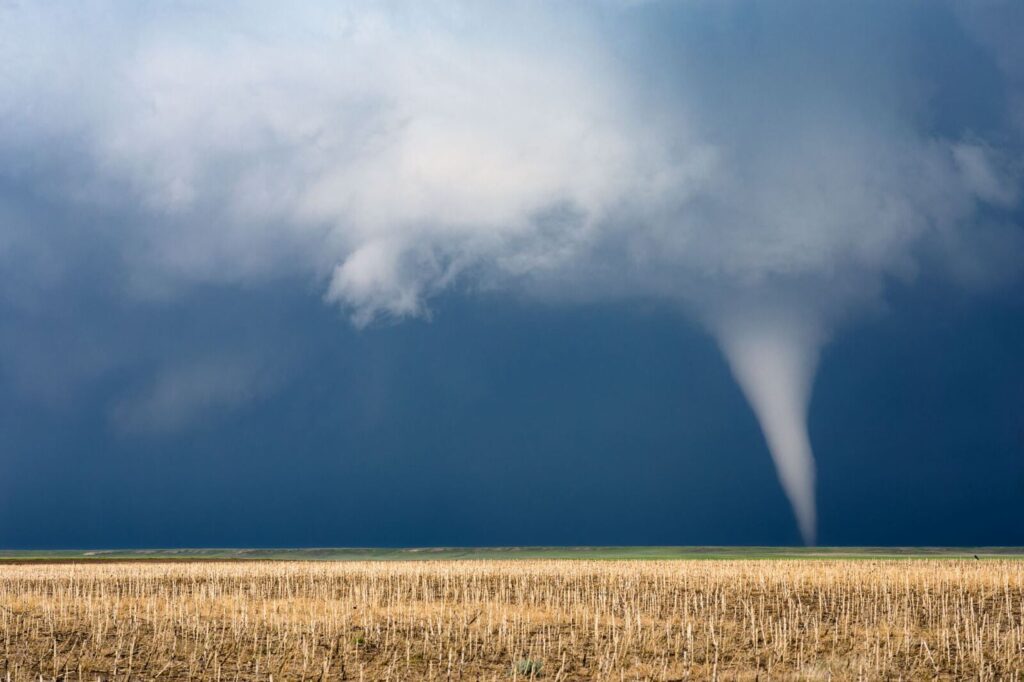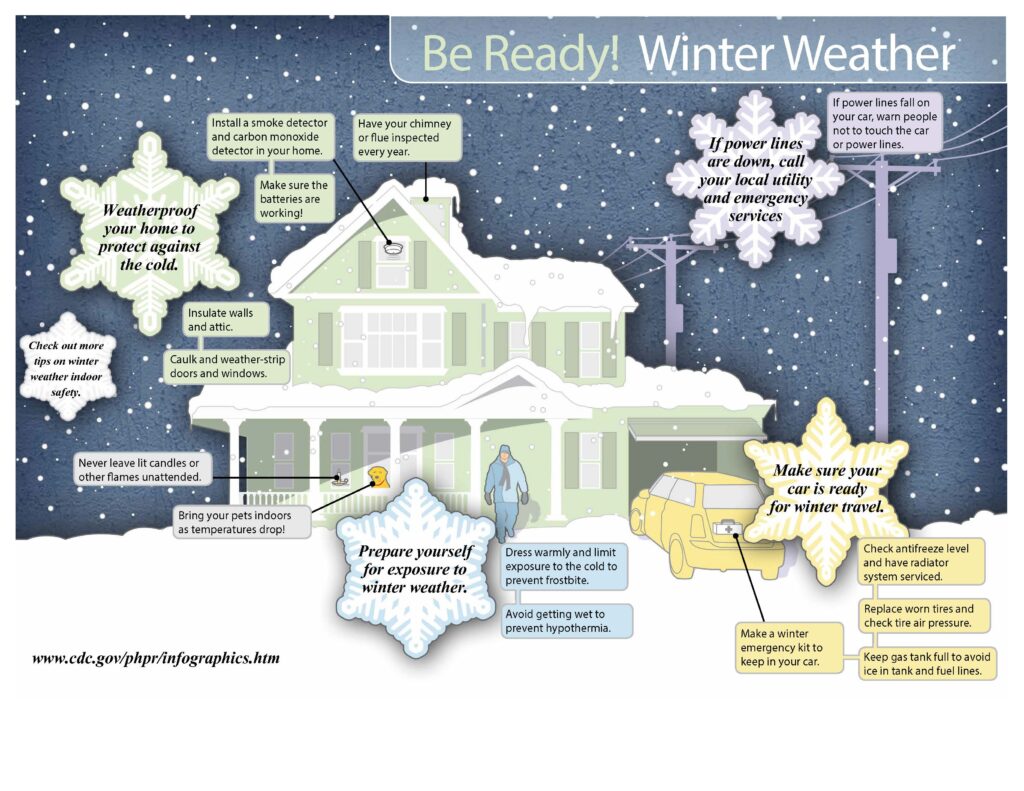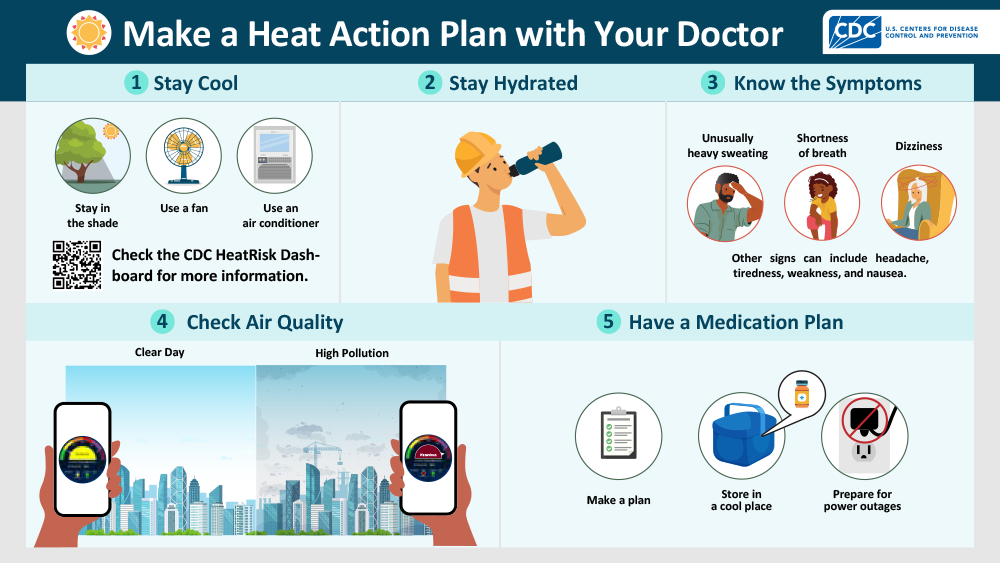
Extreme weather events, including extreme heat, severe cold, heavy rainfall, and storms, pose significant risks to public health. As climate patterns shift and the frequency of such events increases, it is crucial to understand their impact on health and take proactive measures to protect yourself and your community. Extreme weather conditions can lead to a range of health issues, from heat-related illnesses and respiratory problems. Addressing these challenges requires awareness, preparation, and timely action to minimize health risks and ensure safety during adverse weather conditions.
What is Extreme Heat?
Extreme heat occurs when temperatures rise to levels that are much higher than usual for a particular region. This can include both high temperatures and high humidity, which can overwhelm the body’s ability to cool itself through sweating. This situation can lead to heat-related health issues, especially among vulnerable populations.
What is Extreme Cold?
Extreme cold occurs when temperatures drop significantly below the usual range for a particular region. This can include dangerously low temperatures and wind chill, which can increase the risk of frostbite, hypothermia, and other cold-related health issues. Exposure to extreme cold can overwhelm the body’s ability to maintain warmth, especially for vulnerable populations.

Preparation Tips
To minimize the risks associated with extreme cold or heat, follow these important guidelines.
Extreme Cold
- Stay in a Warm Indoor Location
- Spend as much time as possible in heated spaces. Ensure your home is properly insulated and keep heating systems functioning to avoid dangerous indoor temperatures.
- Dress in Layers
- Wear several layers of clothing, including a moisture-wicking base layer, an insulating middle layer, and a waterproof outer layer. Be sure to cover extremities with hats, gloves, scarves, and warm footwear to prevent frostbite.
- Drink Warm Fluids
- Drink warm, non-alcoholic beverages to help maintain body temperature. Avoid alcohol, as it can impair the body’s ability to regulate heat.
- Limit Time Outdoors
- Limit outdoor activities, particularly during extreme cold spells, or take frequent breaks indoors to warm up. If you need to be outside, keep your exposure time as short as possible, and take frequent shelter in heated areas.
- Use Extra Heat Sources Carefully
- When using space heaters, fireplaces, or other supplementary heating methods, ensure they are used safely to prevent fires. Never leave heating devices unattended and ensure proper ventilation to avoid carbon monoxide buildup.
- Check on Others
- Look in on friends, family members, and neighbors, particularly those who are at higher risk, such as older adults or those with chronic health conditions. Ensure they have access to heat and warm clothing.
- Never Leave Children or Pets in Cars
- The interior of a car can become dangerously cold very quickly in extreme weather. Never leave children or pets in a car, even for a short period of time.
Extreme Heat
- Stay in an Air-Conditioned Indoor Location
- Spend as much time as possible in air-conditioned spaces. Air conditioning is the most effective way to protect yourself from heat-related illnesses.
- Drink Plenty of Fluids
- Even if you do not feel thirsty, make sure to drink plenty of water. Proper hydration is crucial to help your body regulate its temperature.
- Schedule Outdoor Activities Wisely
- Plan outdoor activities for the cooler parts of the day, such as early morning or late evening. When you do go outside, wear loose, lightweight, light-colored clothing and apply sunscreen. It’s also important to pace yourself and take frequent breaks in the shade.
- Take Cool Showers or Baths
- To help lower your body temperature, take cool showers or baths. This can be an effective way to cool down if you are feeling overheated.
- Check on Others
- Look in on friends, family members, and neighbors, particularly those who are at higher risk, such as older adults or those with chronic health conditions. Ensure they have access to cooling methods and hydration.
- Never Leave Children or Pets in Cars
- The interior of a car can heat up rapidly, even with the windows slightly open. Leaving children or pets in a car can be extremely dangerous and potentially fatal.
Additional Resources
To find a cooling center in your area, click the “Find a Cooling or Heating Center” buttons below for a directory of locations where you can stay cool and safe.
Stay Informed
Keep up with local news and weather updates from trusted sources like the National Weather Service for information on extreme weather alerts and safety tips. This can help you stay aware of changing conditions and recommendations.

